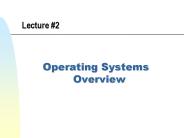Printing Functional Systems - PowerPoint PPT Presentation
1 / 30
Title: Printing Functional Systems
1
Printing Functional Systems
Worlds Within Worlds
Hod Lipson Mechanical Aerospace
Engineering Computing Information
Science Cornell University
2
Last Episode Analog Printing
Illustration Bryan Christie
3
Digital Structures
4
(No Transcript)
5
Reconfigurable systems
- Murata et al Fracta, 1994
- Murata et al, 2000
- Jørgensen et al ATRON, 2004
- Støy et al CONRO, 1999
- Fukuda et al CEBOT, 1988
- Yim et al PolyBot, 2000
- Chiang and Chirikjian, 1993
- Rus et al, 1998, 2001
Zykov, Mytilianos, Adams, Lipson Nature (2005)
6
Bottom Up
7
Programmable Self Assembly
8
Saul Griffith, Nature 2005
9
Hardware implementation 2D
White, Kopanski Lipson, ICRA 2004
10
Implementation 1 Magnetic Bonding
With Paul White, Victor Zykov
11
Construction Sequence
High Pressure
Low Pressure
12
Construction Sequence
13
Construction Sequence
14
Construction Sequence
15
Construction Sequence
16
Construction Sequence
17
Reconfiguration Sequence
18
Reconfiguration Sequence
19
Implementation 2 Fluidic Bonding
Accelerated x16
Real Time
With Paul White, Victor Zykov
20
With David Erickson, Mike Tolley
21
Tile dimension 500µm
With Mike Tolley, David Erickson
22
Top Down
23
Jonathan Hiller
24
Voxel Designs
Also considering -Spheres -Varying
topologies -Two-phase
25
Digital Precision 1D and 2D
-Results assume uniform variation of spheres
within tolerance range (Gaussian distribution
would result in still better precision)
26
Digital Precision 3D
Conclusions -Accuracy of digital structures
scales favorably (sqrt of length) -Accuracy of
manufacturing techniques using linear positioning
systems fundamentally scales linearly
This applies to all other machine-controlled
manufacturing processes, but is complicated by
the use of closed loop feedback and other
tradeoffs.
27
Digital Build Process
Jonathan Hiller
28
6 Dekavoxel Digital Cylinder
Manually Assembled
29
Randomized Machines
Tensegrity Robotics
Particle Robotics
Dictyostelium
Don Ingber, Scientific American 1998
With Chandana Paul
Cytoskeleton of a mammalian cell
30
Grand Challenges
- Can we design machines that can design other
machines? - Can we make machines that can make other
machines? - Can we make machines that can explain other
machines?































